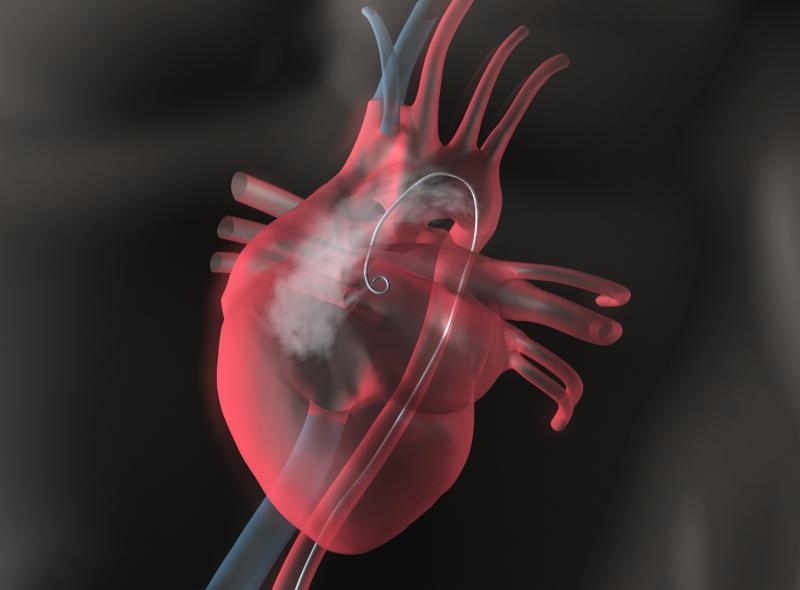
Atrial fibrillation before cardiopulmonary bypass appears to increase the likelihood of postoperative hyperfibrinolysis in patients with rheumatic valvular heart disease, a recent study has shown.
The study included 203 rheumatic valvular heart disease patients, of whom 78 (mean age, 54.2±8.6 years; 29.5 percent male) had hyperfibrinolysis after bypass while 125 (mean age, 54.4±8.5 years; 29.6 percent male) did not. Those who required reoperation, emergency operation, or who had renal or liver dysfunction were ineligible for analysis.
Preoperative atrial fibrillation was significantly more common among those who developed postoperative hyperfibrinolysis (92.3 percent vs 55.2 percent; p<0.01). Operative factors were comparable between groups.
After bypass, reaction time was significantly decreased in the hyperfibrinolysis group, both relative to baseline (5.9±1.2 to 5.3±1.4 minutes; p<0.05) and to the nonhyperfibrinolysis comparators (5.3±1.4 vs 5.9±1.6 minutes; p=0.011).
On the other hand, postoperative daily drainage (655.3±131.5 vs 535.4±161.4 mL; p<0.01) and the transfusion of both red blood cells (5.9±2.2 vs 4.7±2.8 units; p<0.01) and fresh frozen plasma (621.8±220.2 vs 455.2±208.5 mL; p<0.01) were all significantly greater in patients who developed postbypass hyperfibrinolysis.
Logistic regression analysis confirmed that the presence of preoperative atrial fibrillation significantly increased the risk of developing hyperfibrinolysis after bypass (odds ratio, 19.691, 95 percent confidence intervals [CI], 6.849–56.612; p<0.05).